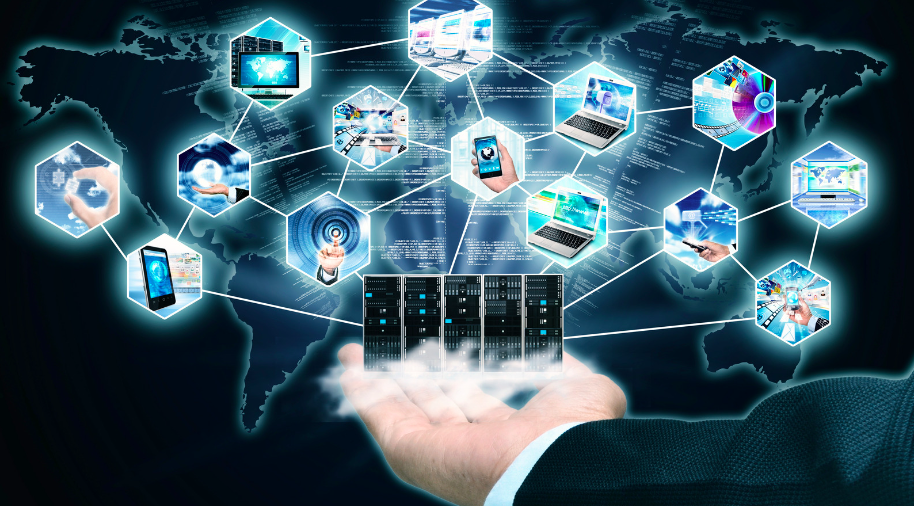In today’s fast-paced world, technology has become an essential part of our daily lives, revolutionizing how we work, communicate, learn, and live. From smartphones to artificial intelligence (AI), the advancements in technology continue to transform every aspect of society. Let’s take a closer look at how technology is shaping the modern world and the profound impact it has on our lives.
1. The Digital Revolution: Connecting the World
The digital age has fundamentally altered how we connect with others. With the rise of the internet, social media, and communication apps, distance is no longer a barrier. We can communicate instantly with people across the globe, share information, and collaborate in real-time. Platforms like Facebook, WhatsApp, and Zoom have bridged gaps, allowing for seamless communication and fostering a global community.
2. Artificial Intelligence and Automation
Artificial intelligence (AI) and automation have begun reshaping industries, from healthcare to manufacturing. AI systems can now analyze vast amounts of data and perform tasks that were once only possible for humans. Machine learning, a branch of AI, enables algorithms to improve their accuracy over time, making them increasingly effective in areas such as customer service, data analysis, and even creative industries.
Automation in industries like robotics and manufacturing has led to improved efficiency, reduced human error, and lower production costs. However, it also brings challenges such as job displacement, as machines take over repetitive tasks.
3. Smart Homes and the Internet of Things (IoT)
The concept of the “smart home” has become a reality, thanks to advancements in the Internet of Things (IoT). IoT refers to the network of physical devices—such as home appliances, security systems, and even vehicles—that are connected to the internet and can be controlled remotely. Smart thermostats like Nest, voice-controlled assistants like Amazon Alexa, and connected refrigerators that can monitor food supplies are just a few examples of how IoT is making our homes more convenient, energy-efficient, and secure.
4. Technology in Education
Technology has revolutionized the way we learn. With the rise of online learning platforms, students can access educational resources from anywhere in the world. Websites like Coursera, Khan Academy, and edX offer courses from top universities, allowing people to learn new skills and improve their knowledge.
Virtual classrooms, video lectures, and digital textbooks have made education more accessible, breaking down geographical and economic barriers. The COVID-19 pandemic further accelerated the adoption of technology in education, with schools and universities shifting to online learning, ensuring that students continued their studies even during lockdowns.
5. Healthcare Innovation
Advances in healthcare technology have led to significant improvements in patient care. From telemedicine, which allows patients to consult with doctors remotely, to robotic surgeries that offer precision and minimal invasiveness, technology is revolutionizing the healthcare industry. Wearable devices like Fitbit and Apple Watch can monitor vital signs, track physical activity, and alert individuals to potential health issues, helping people manage their health more proactively.
Moreover, AI-powered diagnostics are making it easier to detect diseases early, allowing for more effective treatment and better patient outcomes. Technologies like CRISPR gene editing are even opening new possibilities for treating genetic disorders.
6. Blockchain and Cryptocurrency
Blockchain technology, originally developed as the foundation for cryptocurrencies like Bitcoin, is now being used in a variety of industries. Blockchain provides a secure, transparent, and decentralized way of storing and transferring data, making it ideal for applications in finance, supply chain management, and even voting systems.
Cryptocurrencies, which rely on blockchain for secure transactions, have garnered significant attention in recent years. While digital currencies like Bitcoin and Ethereum are still relatively volatile, they have introduced new ways of thinking about money, transactions, and financial systems.
7. The Rise of 5G Technology
The introduction of 5G technology promises to take the internet to new heights. With its faster speeds, lower latency, and greater connectivity, 5G will enable innovations in fields such as autonomous vehicles, virtual reality (VR), and smart cities. It will facilitate better communication between devices, further accelerating the development of IoT and opening new possibilities for industries like entertainment, healthcare, and logistics.
5G technology is also expected to revolutionize industries that require real-time communication and data processing, including manufacturing, agriculture, and even remote surgery.
8. Social Media and the Digital Economy
Social media platforms like Instagram, Twitter, and TikTok have not only changed how we connect with others but also how we interact with brands, make purchases, and build businesses. The rise of the digital economy has created new avenues for entrepreneurs and businesses to reach customers through digital marketing, e-commerce, and influencer marketing.
Online marketplaces like Amazon and eBay have reshaped the retail industry, while platforms like Etsy allow small businesses and independent creators to sell their products to a global audience. The gig economy, powered by technology, has also created new opportunities for freelance workers to find jobs, often through apps like Uber, Fiverr, and TaskRabbit.
9. The Environmental Impact of Technology
While technology has brought about many benefits, it also poses challenges, particularly when it comes to environmental sustainability. The production and disposal of electronic devices, such as smartphones, computers, and batteries, can contribute to electronic waste (e-waste), which is a growing global concern.
However, technology is also playing a role in combating climate change. Renewable energy technologies like solar and wind power, along with electric vehicles and smart grid systems, are helping reduce the environmental impact of traditional energy consumption. Additionally, technology is being used to monitor and protect ecosystems, track deforestation, and manage natural resources more effectively.
10. The Future of Technology
The future of technology holds exciting possibilities. From quantum computing, which has the potential to revolutionize data processing and cryptography, to brain-computer interfaces that could enable direct communication between the brain and machines, the next few decades promise groundbreaking innovations.
However, as technology continues to advance, ethical questions surrounding privacy, data security, and the role of AI in decision-making will become more pressing. Ensuring that technological advancements benefit all of humanity, rather than exacerbating inequality, will be one of the greatest challenges of the future.
Conclusion
Technology has become an integral part of our lives, influencing nearly every aspect of society. From connecting people globally to transforming industries, healthcare, and education, its impact is undeniable. As technology continues to evolve, it will open up new opportunities while presenting challenges that require careful consideration. Embracing innovation while addressing ethical and environmental concerns will be key to ensuring that technology continues to benefit humanity for generations to come.

